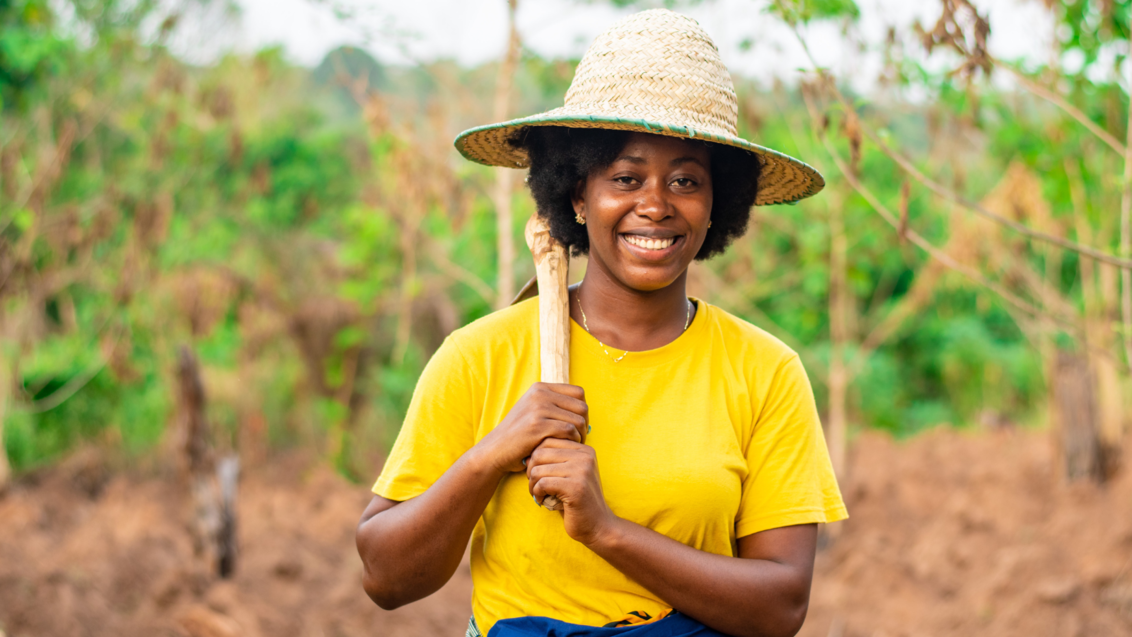Women’s land rights help push back the desert

By Jennifer Blanke*
On 17 June, the United Nations marked the annual World Day to Combat Desertification and Drought. Climate change is exacerbating many socioeconomic and environmental challenges – few more dramatically than desertification. More than one-third of the world’s arable land is now degraded. The resulting loss of productive capacity harms the livelihoods of over 1.5 billion people.
Drylands often sustain pastoralists and small-scale farmers, but they are highly susceptible to desertification. Numerous factors can play a role here, alongside climate change: population growth, inappropriate policies, deforestation, land expropriation, overgrazing or other unsuitable farming practices, and political instability.
Earlier this year, the UN Convention to Combat Desertification (UNCCD) published its Global Land Outlook. The report paints an alarming picture of decades of land degradation. But it also lays out pathways to land restoration. Degradation can be halted – and reversed. The UNCCD emphasizes the crucial role of community participation and cooperation, supported by governments.
But what does it take to turn global commitments into action? Empowering women is crucial. They frequently manage agricultural land and (if given the chance) are particularly good stewards. The UNCCD’s 2017 Gender Action Plan acknowledges the specific role of women in sustainable land management and restoration. But a recent study shows that women are twice as affected by drought, land degradation, and deforestation as men. The reasons are clear.
Half the world’s countries limit female access to land
Frequently, discriminatory social norms exclude women from decision-making on land. In much of the world, women lack the land rights, cash, and authority to manage the natural resources on which they directly depend. They own less than 20% of the world’s land, although they often form a large percentage of the rural workforce. More than 400 million women ensure the majority of farm produce.
More than 90 nations forbid women to own land. In more than 100 countries, religious or traditional laws prevent a widow from inheriting her husband’s property. The World Bank’s recent report on ‘Women, Business and the Law’ shows that globally, women still have only three-quarters of the legal rights given to men. When women cannot own land, they are understandably reluctant to invest in it.
Land rights are a crucial enabler for halting land degradation. They are also a key to combating desertification and drought. The international NGO Landesa points to a whole series of benefits when rural communities achieve secure land tenure. Family income increases by 150 percent, agricultural production increases by 30 percent, teenage pregnancy rates halve, and school completion rates double. Female land rights vastly improve livelihoods and food security. They also enable women to build assets, increase their autonomy, reduce the threat of domestic violence, and provide for their families' needs.
Reforms are good – if they’re enforced
Some countries have now realized this and made reforms. Kenya’s Matrimonial Property Act of 2013 enables women to own land. Passing such laws is important, but they are not always enforced. Fewer than two percent of title deeds issued in Kenya after 2013 went to women. Even where the laws are clear, regulations guiding implementation can be insufficient. Patriarchal traditions and a lack of awareness about their rights mean that many women in Kenya, as elsewhere, still struggle to retain land that is legally theirs. In 2011, Bangladesh laid out a National Women Development Policy. It aimed to establish women’s right to property. Today, however, one in five Bangladeshi women still fear they may lose their right to use the land they live on within the next five years.
Global coalitions, such as Stand for Her Land, want to close the gap between women’s rights on paper and their land access in practice. The campaigners know this would be a ‘win-win’ – not least in the battle against land degradation.
Any government that takes this battle seriously must put inclusive land rights at the center of its efforts. Passing laws is not enough. Governments have to implement accompanying measures. They must also raise awareness of the benefits, and help shift social customs, norms, and attitudes. Mainstreaming women’s empowerment into national action programs against desertification is essential. Governments will then set a much faster and steady course towards a sustainable planet for present and future generations. We have no time to lose.

*Jennifer Blanke is a member of our Board. She is is an expert on economic development. She served as Chief Economist of the World Economic Forum and also held the position of Vice President for Agriculture, Human and Social Development of the African Development Bank Group.
What about the Syngenta Foundation? We know that women are critical agents of change – but often at a disadvantage. Female farmers and entrepreneurs are therefore a particular focus of our new strategy. By 2025, wherever feasible, we aim for at least 50% of program benefits to accrue to women. Another pillar of our strategy is climate-smart, resilient agriculture. Soil health plays an important role. We are not specialists in land rights. But we believe that women’s progress and more productive land are crucially important for the future of smallholder farming. And we’re working for both.
